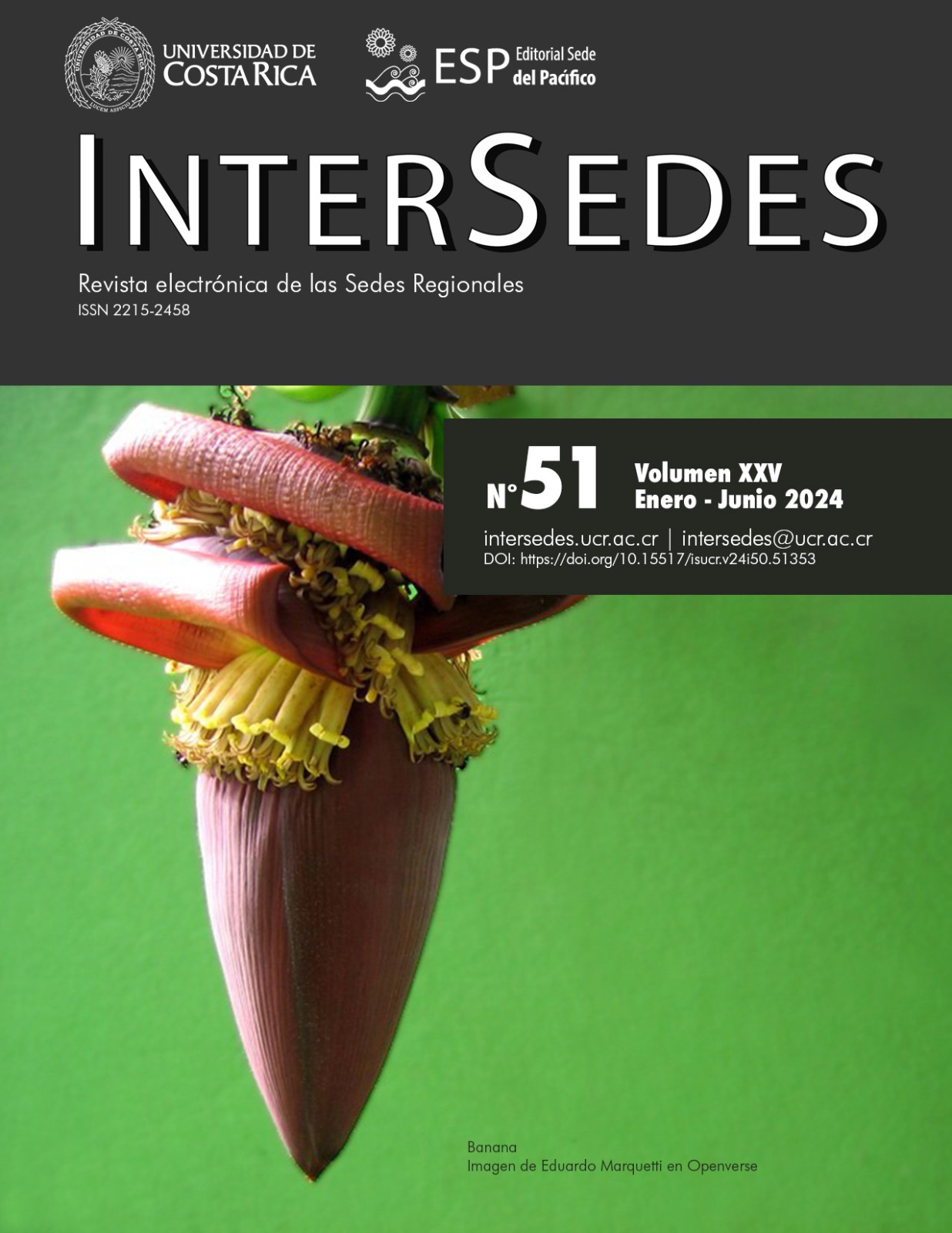Abstract
This article explores the experience of implementing the portfolio of evidence as a pedagogic strategy in the course Philosophy of Law I during the I semester of 2022 at the University of Costa Rica in Guanacaste. This experience was systematized in order to assess the pertinence and importance of said strategy on fostering critical thinking as part of the legal phenomenon. This research followed a qualitative approach by undergoing a bibliographic review and applying a questionnaire to the student population. The results show that this strategy promoted the development of knowledge, skills, and attitudes necessary for this course. Therefore, it is concluded that applying this strategy prompted students’ learning, which proved its pertinence in regard to the course objectives.
References
Aebli, H. (1958). Una didáctica fundada en la psicología de Jean Piaget. Kapelusz.
Amorós, et al. (2012). La evaluación de los alumnos a través del portafolio. REJIE: Revista Jurídica de Investigación e Innovación Educativa, 6, 81-94.
Baltodano, J.D. (2022). Hacia un nuevo modelo pedagógico para la enseñanza y aprendizaje del Derecho: Algunas apreciaciones desde una perspectiva crítica. Revista Ensayos Pedagógicos, 17(1), 61-82. https://doi.org/10.15359/rep.17-1.2
Bloxham, S., Boyle, F., & Thanaraj, A. (2009). Using e-portfolios to support PDP and reflective learning within the law curriculum: A case study. Journal of Information, Law and Technology, 2009(3). http://go.warwick.ac.uk/jilt/2009_3/bloxham
Barberá, E., Barujel, A. G., & Illera, J. (2009). Portafolios electrónicos y educación superior en España: Situación y tendencias. Revista de Educación a Distancia, 8. https://www.um.es/ead/red/M8/
Barquero, R. (1996). Vigotsky y el aprendizaje escolar. Aique Grupo Editor S.A.
Barragán-Giraldo, D. (2023). Sistematización de experiencias educativas: Entre teoría y metodología. Revista Internacional de Pedagogía e Innovación Educativa, 3(1). https://doi.org/10.51660/ripie.v3i1.122
Calero, M. (2008). Constructivismo pedagógico: Teorías y aplicaciones básicas. Alfaomega.
Deval, J. (2001). Hoy todos son constructivistas. Educere. 15, 353-359. http://www.redalyc.org/articulo.oa?id=35651520
Díaz, F. y Hernández, G. (2010). Estrategias docentes para un aprendizaje significativo. Mc Graw Hill.
Facultad de Derecho. (2022). Programa del curso DE-2005 Filosofía del Derecho I. Universidad de Costa Rica.
Font, A., & Angelats, L. (2018). Simulación de un juicio como TFG. REDU. Revista de Docencia Universitaria, 16(2), 87-103. https://doi.org/10.4995/redu.2018.10166
Font, A., Andrés, E., Caballol, L., & Masbernat, P. (2021). Hacia un entorno de aprendizaje personal (PLE) a través del portafolios digital y sus aplicaciones en un entorno profesionalizador en Derecho. Revista Pedagogía Universitaria y Didáctica del Derecho, 8(2), 39-59. https://doi.org/10.5354/0719-5885.2021.65858
Freire, P. (2005). Pedagogía del oprimido. Siglo XXI Editores.
Gallego, R. (1997). Discurso constructivista sobre las ciencias experimentales. Magisterio.
Gómez-Millán, M., Mazuelos, M., & Gómez, R. (2012). El Portafolios como Herramienta Clave de la Evaluación Docente: Su Aplicación a las Asignaturas de Derecho del Trabajo en el Grado de Relaciones Laborales y Recursos Humanos.
TRABAJO. Revista Iberoamericana de Relaciones Laborales, 25-26, 17-40. https://doi.org/10.33776/trabajo.v0i25-26.2107
Greco, M. B. (2012). La autoridad (pedagógica) en cuestión: una crítica al concepto de autoridad en tiempos de transformación. Homo Sapiens Ediciones.
Haba, E.P. (2012). Axiología jurídica fundamental. Editorial UCR.
Hamilton, N. (2017). 'Formation of an ethical professional identity' learning outcomes and E-portfolio formative assessments. The University of the Pacific Law Review, 48(4), 847.
Hernández, R., Fernández, C. y Baptista, P. (2006). Metodología de la Investigación. Mc Graw Hill.
Jara, O. (2018). La sistematización de experiencias: práctica y teoría para otros mundos posibles. CINDE.https://cepalforja.org/sistem/bvirtual/wp-content/uploads/2019/09/LaSistematizaci%C3%B3n-de-Experiencias-pr%C3%A1ctica-yteor%C3%ADa-para-otros-mundos-posibles.pd
Moreira, M. (2020). Aprendizaje significativo: la visión clásica, otras visiones e interés. Proyecciones, (14), 22-30. https://doi.org/10.24215/26185474e010
Piedra, L. (2015). El constructivismo cibernético de segundo orden en la docencia universitaria. En Gutiérrez, M. (Ed) Docencia constructivista en la universidad: una serie de ensayos sobre experiencias en Costa Rica (pp. 21-46). Universidad de Costa Rica. Estación Experimental Agrícola Fabio Baudrit Moreno.
Schunk, D. (2012). Teorías del aprendizaje. Una perspectiva educativa. Pearson.
Vargas, K., y Acuña, J. (2020). El constructivismo en las concepciones pedagógicas y epistemológicas de los profesores. Revista Innova Educación, 2(4), 555-575. https://doi.org/10.35622/j.rie.2020.04.004
Vila, I. (2007). Lev S. Vygotsky: la psicología cultural y la construcción de la persona desde la educación. En Trilla, J.(Ed) El legado pedagógico del siglo XX para la escuela del siglo XXI (pp.207-226). Editorial Graó.
Waye,V., & Faulkner, M. (2012). Embedding E-portfolios in a Law Program: Lessons from an Australian Law School. Journal of Legal Education, 61(4), 560-584.
Comments

This work is licensed under a Creative Commons Attribution-NonCommercial-NoDerivatives 3.0 Unported License.
Copyright (c) 2023 Jose Daniel Baltodano Mayorga



